
Biltmore
One of the most prominent historical attractions here in Asheville, the Biltmore Estate offers more than its famous architectural wonder. Home to flowering gardens and wooded trails leading to iconic views of the Blue Ridge Mountains, NEMAC is facilitating an analysis of these historic and protected areas, as well as the potential for future changes to the landscape.
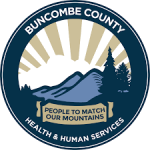
Buncombe County Government
Buncombe County and the City of Asheville have established ordinances specific to the development of land on steep inclines. In collaboration with the Buncombe County GIS office and Asheville GIS, the mapWNC slope calculation tool was created to determine the natural slope for parcels of land throughout the region.

City of Asheville
The NEMAC team led City of Asheville staff through the “Steps to Resilience” training, a five-step climate-risk planning process. The resulting citywide resilience plan designed to address the effects of climate change was incorporated into Asheville’s 2018 comprehensive plan.
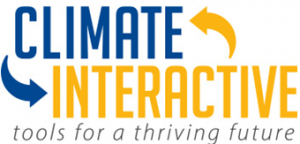
Climate Interactive
Established in 2005, Climate Interactive is rooted in the fields of system dynamics modeling and systems thinking. This non-profit group creates and shares tools that drive effective and equitable climate action.

Ecobot
Ecobot brings expertise together from decades in environmental consulting and enterprise software development to create technology so profoundly intuitive and impactful that everyone who does environmental fieldwork – or leads a team of field scientists – will want to use it.

Fernleaf
Fernleaf Interactive is a climate solutions business startup that was launched from NEMAC’s applied research. Together we have established a public-private partnership that leverages the expertise of both groups by empowering communities and organizations to make the right investments for effective climate resilience and adaptation.
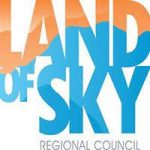
Land of Sky Regional Council of Governments
This local group worked with NEMAC to develop a resilience plan for the region’s economic development and transportation assets. By following the “Steps to Resilience” from the U.S. Climate Resilience Toolkit, the resultant report revealed regional assets facing exposure from a changing environment.
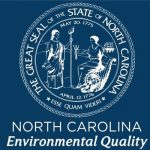
North Carolina Geological Survey
NEMAC collaborates with the North Carolina Geologic Survey (NCGS) to inform people about landslide hazards in western North Carolina through visualizations, an online map viewer, and guided online stories.

Mountain Area Health Education Center
MAHEC excels at identifying innovative practices that increase training and foster retention among healthcare workers throughout Western North Carolina (WNC). NEMAC’s expertise in user research and GIS analysis supports MAHEC in providing up-to-date and useful data and information to WNC communities.

National Fish and Wildlife Foundation
In collaboration with NFWF, NEMAC helped to develop Coastal Resilience Assessments for all U.S. coastlines and a supplemental web tool to interact with and understand the assessment data and results.
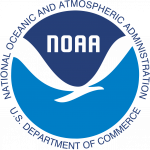
National Oceanic and Atmospheric Administration
NEMAC partners with NOAA’s Technical Support Unit to create the National Climate Assessment Sandbox, a tool to help authors create figures for their respective chapters in the National Climate Assessment.

National Integrated Drought Information System
Understanding complex and ever-changing data related to water availability is a task difficult to master by even the experts. NEMAC works with NIDIS to ensure that this information is displayed to its stakeholders effectively and efficiently.
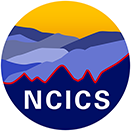
North Carolina Institute for Climate Studies
As an inter-institutional research institute of the University of North Carolina system, NCICS facilitates climate-related research across the UNC system and its partner organizations.

North Carolina Department of Environmental Quality
NEMAC collaborates with the North Carolina Geologic Survey to inform people about landslide hazards in western North Carolina. Users can explore current and historical information about landslides across the region, and access resources to help plan for and build resilience to landslide hazards.
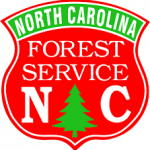
North Carolina Forest Service
NEMAC and NCFS created the Southern Forest Area Change Tools (SouthFACT), which utilizes satellite imagery and additional GIS data to identify and quantify changes in forest cover in the Southeast.

NOAA’s Climate Program Office
The U.S. Climate Resilience Toolkit, a Webby Award-nominated website is designed to help local governments build climate resilience. NEMAC and NOAA’s CPO developed and have continued to maintain and evolve the Toolkit.

Southeast Sustainability Directors Network
In collaboration with SSDN and the University of Arkansas, NEMAC helped develop a program that provides education on community resilience planning, promotes network collaboration through workshops, and developed an online Community Resilience Planning Handbook for communities across the Southeast.

Southern Group of State Foresters
The mission of SGSF is to provide leadership in sustaining the economic, environmental, and social benefits of the South’s forests. They work together to identify and address existing and emerging issues and challenges that are important to southern forests and citizens.

The Water Institute of the Gulf
Similar to NEMAC, TWI is an interdisciplinary applied research institution and therefore, they are willing to think creatively and collaboratively, across fields of science and management agencies, to identify solutions to complex environmental and societal problems.

Triangle J Council of Governments
NEMAC guided the Triangle Regional Resiliency Partnership in assessing, planning, and prioritizing resilience-building strategies.

United States Global Change Research Program
NEMAC works with the USGCRP Climate Indicators team to develop static and dynamic graphics that help communicate key climate messages for the Global Change Indicator platform.
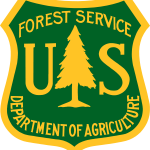
U.S. Forest Service’s Eastern Forest Environmental Threat Assessment Center
NEMAC supports EFETAC in the development of ForWarn, a forest disturbance monitoring system, and LanDAT, a tool that aids stakeholders in understanding and incorporating landscape resilience and vulnerability into project planning.